Scientific Committee
Primary tabs
The Biocuration2026 Scientific Committee is at the core of developing the conference programme, bringing together a mix of expertise, backgrounds, and experiences. Composed of experts from across the globe, the committee blends diverse perspectives and academic disciplines to ensure a comprehensive approach to biocuration. With representation from a wide range of geographical regions, the committee embodies the spirit of global collaboration that and ensures that the #Biocuration2026 programme is grounded in the latest scientific research and real-world practices.
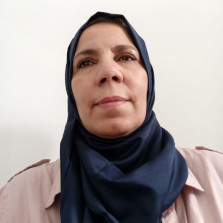
Fouzia RADOUANI has a PhD in Immunology; she is acting as research director and head of Microbiology department at Institut Pasteur du Maroc, Casablanca. Her research interest includes infectious diseases, genomics, data science and Bioinformatics, she is conducting and managing different research projects, mainly, H3Africa, H3ABionet, PerMediNA, AfricaBP, GARN-CLS and Afri-Gen, where she is leading a working group for data curation. Dr. RADOUANI is the principal investigator representing Institut Pasteur du Maroc within H3Abionet and AGDH projects, she is supervising and training MSc and PhD students. Her interested in bioinformatics consists in genomic data analysis, developing bioinformatics tools and databases. She is authoring and co-authoring numerous publications and book chapters, she also presents her work in various national and international conferences. Dr. RADOUANI is providing training in terms of her skills with main goal to meet the needs in microbiology, genomics, data analysis and biological mechanisms exploration.
Dr Fouzia Radouani
Institut Pasteur du Maroc, Morocco
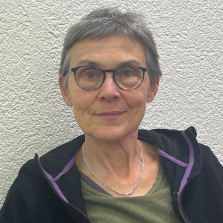
FL heads the Proteome Informatics Group at the SIB Swiss Institute of Bioinformatics in Geneva, Switzerland. She received a PhD in Computer Science (Artificial Intelligence) from the University Pierre & Marie Curie, Paris, France and held research positions in France, Japan and Australia working on knowledge representation and data mining methods. She spent a few years in industry (Proteome Systems Ltd in Sydney, Australia and Geneva Bioinformatics (GeneBio) S.A, in Geneva, Switzerland) before joining SIB in 2006, where she has been driving knowledge discovery projects in proteomics and more recently in glycoscience, a source of many bioinformatics challenges spanning data standardisation, formalisation, and curation.
Dr Frederique Lisacek
SIB Swiss Institute of Bioinformatics, Switzerland
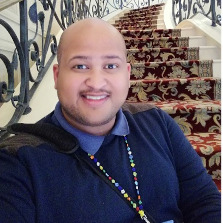
Lyndon Zass is a University of Cape Town-based geneticist and data specialist whose work bridges human genetics, public health, and bioinformatics to advance phenotype standardisation and genomic medicine across the African research landscape. Lyndon Zass serves as a Project Manager African Genomics Data Hub (AfriGen-D). In addition, he plays a substantial role in the eLwazi Open Data Science Platform (ODSP) as a Project Co‑ordinator and co‑chair of the eLwazi Data Support Work Package.
Mr Lyndon Zass
University of Cape Town, South Africa
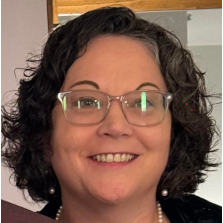
As a Professor at the University of Maryland School of Medicine, Institute for Genome Sciences, Dr. Schriml's current research incorporates data science and knowledge engineering, focusing on the classification of genetic and environmental drivers of complex diseases, biomedical data sharing, integration and harmonization. Dr. Schriml is the PI of the Human Disease Ontology project (http://www.disease-ontology.org/), a NIH/NHGRI-funded Genomic Resource and Knowledgebase, established in 2003. Dr. Schriml has been active in the biocuration community since 1999.
Professor Lynn Schriml
University of Maryland School of Medicine, United States
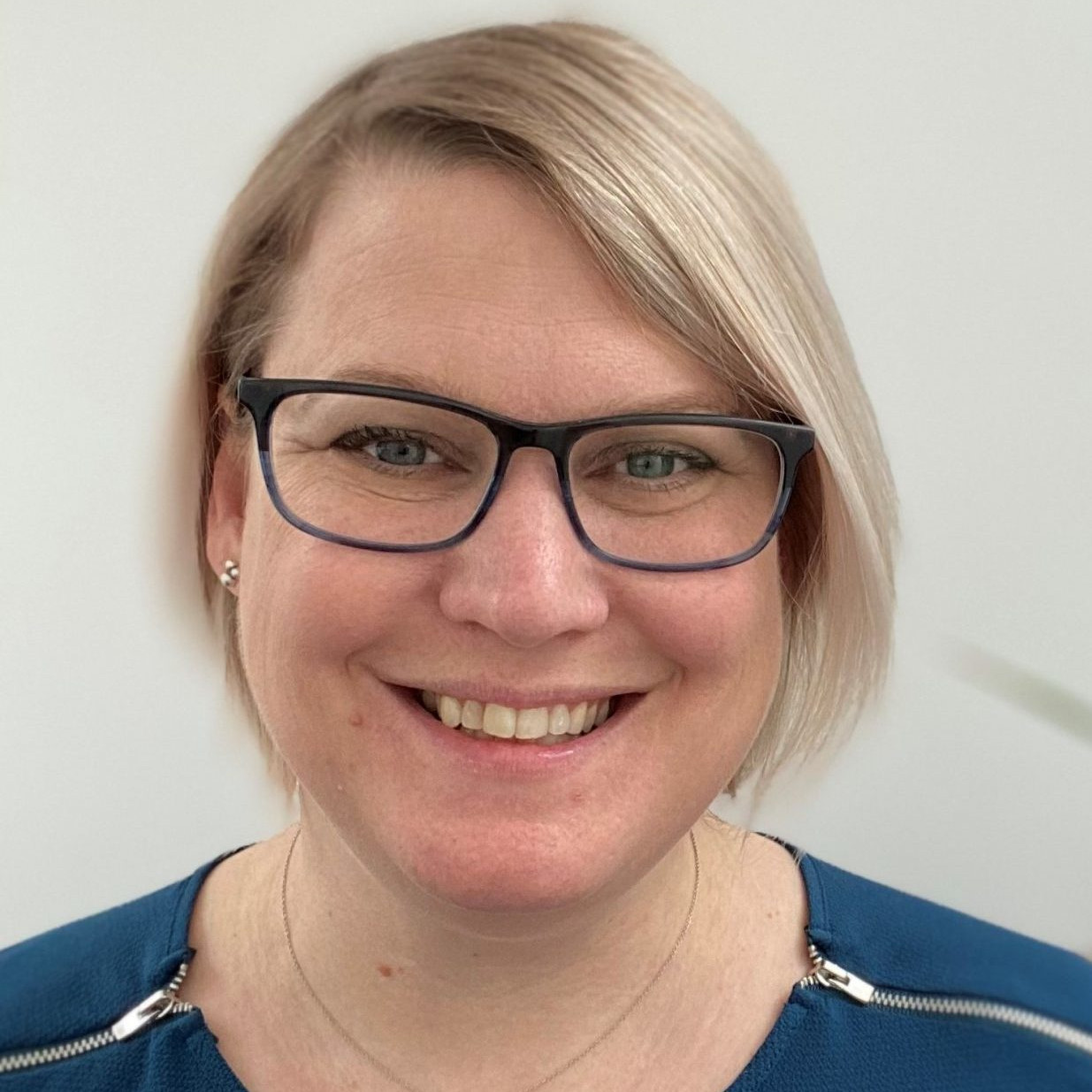
Dr. Mélanie Courtot is Senior Director of Genome Informatics and a Principal Investigator at the Ontario Institute for Cancer Research (OICR), and Associate Professor in the Departments of Medical Biophysics and Computer Science at the University of Toronto. Her research lies at the interface of biomedicine and computing, with a focus on building scalable data infrastructure and intelligent systems to support cancer genomics and translational research. Dr. Courtot has a long-standing commitment to biocuration and the development of community-driven data standards. She serves on the Strategic Leadership Committee of the Global Alliance for Genomics and Health (GA4GH), where she co-leads the Data Use and Cohort Representation group, and contributes to global cohort harmonization efforts through the International HundredK+ Cohorts Consortium (IHCC). Prior to joining OICR, she led metadata standards development at EMBL-EBI, including coordination of the Gene Ontology editorial office and the Gene Ontology Annotation projects. She also contributed to major international initiatives such as FAIRPlus, CINECA, and the Davos Alzheimer's Collaborative, advancing data quality, interoperability, and semantic enrichment for large-scale biomedical data resources. Dr. Courtot holds a PhD in Bioinformatics from the University of British Columbia, and degrees in Biochemistry and Computer Science from Université Louis Pasteur in Strasbourg, France. She is passionate about community engagement and continues to champion open science, responsible data sharing, and collaborative infrastructure development in the biocuration and bioinformatics communities.
Dr Mélanie Courtot
Ontario Institute for Cancer Research and University of Toronto, Canada
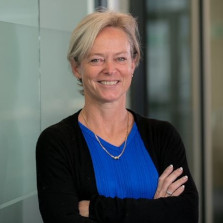
Prof Mulder heads the Computational Biology Division at UCT. She is PI of the DS-I Africa eLwazi Open Data Science Platform and co-leads a Sickle Cell Disease Data Coordinating Centre and a Wellcome Trust Discovery Data Integration Platform at UCT. She led H3ABioNet, a Pan African Bioinformatics Network which developed bioinformatics capacity to enable genomic data analysis for more than a decade. Her research focuses on genetic determinants of susceptibility to disease, African genome variation, and microbial genomics and infectious diseases. Her group provides bioinformatics services and training and develops new algorithms and resources for African genomics. Prof Mulder is actively involved in capacity development in Bioinformatics and genomics. She also sits on a number of international scientific advisory boards and is currently the interim Director for the African Bioinformatics Institute.
Prof Nicola Mulder
University of Cape Town, South Africa
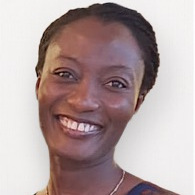
Dr Ovokeraye Oduaran is a biomedical scientist and program leader with over a decade of international experience in human genetics, microbiome research, and bioinformatics. She earned her PhD in Human Genetics from the University of the Witwatersrand, where she applied bioinformatics approaches to identify type 2 diabetes susceptibility gene variants in African populations. Dr Oduaran has led and contributed to multi-country research collaborations, most notably within the H3Africa consortium, where she currently serves as Chairperson of the Microbiome Task Force. Her work integrates scientific advocacy, academic publishing, and stakeholder engagement, with a strong emphasis on equitable partnerships in global health research. She has authored peer-reviewed publications in high-impact journals and has presented her research at international conferences across Africa, Europe, and North America. She continues to advocate for data-driven approaches to inclusive microbiome science. Dr. Oduaran is affiliated with the Sydney Brenner Institute for Molecular Bioscience at the University of the Witwatersrand, South Africa.
Dr Ovokeraye Hilda Oduaran
University of the Witwatersrand, South Africa
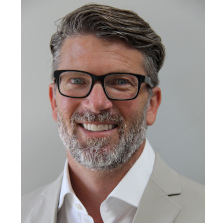
Trained in computational biology (specifically computational protein folding using statistical-mechanics based techniques with Dr. Ken Dill), Dr. Thomas turned to genomics as soon as the Human Genome Project began pilot work in 1995. The culmination of this early work was the publication of the paper describing the sequencing of the first human genome in 2001; Dr. Thomas led the work described in the 10-page section of the paper entitled An overview of the predicted protein coding genes in the human genome. Since that time, Dr. ThomasÕs group has continued to innovate in the area of computational analysis of genomic data, with an emphasis on gene function and evolution. In addition to founding and continuing development on the PANTHER phylogenomics project, Dr. Thomas is a director of the Gene Ontology Consortium, one of the largest and best-known bioinformatics projects in the world.
Trained in computational biology (specifically computational protein folding using statistical-mechanics based techniques with Dr. Ken Dill), Dr. Thomas turned to genomics as soon as the Human Genome Project began pilot work in 1995. The culmination of this early work was the publication of the paper describing the sequencing of the first human genome in 2001; Dr. Thomas led the work described in the 10-page section of the paper entitled An overview of the predicted protein coding genes in the human genome. Since that time, Dr. ThomasÕs group has continued to innovate in the area of computational analysis of genomic data, with an emphasis on gene function and evolution. In addition to founding and continuing development on the PANTHER phylogenomics project, Dr. Thomas is a director of the Gene Ontology Consortium, one of the largest and best-known bioinformatics projects in the world.
Trained in computational biology (specifically computational protein folding using statistical-mechanics based techniques with Dr. Ken Dill), Dr. Thomas turned to genomics as soon as the Human Genome Project began pilot work in 1995. The culmination of this early work was the publication of the paper describing the sequencing of the first human genome in 2001; Dr. Thomas led the work described in the 10-page section of the paper entitled An overview of the predicted protein coding genes in the human genome. Since that time, Dr. ThomasÕs group has continued to innovate in the area of computational analysis of genomic data, with an emphasis on gene function and evolution. In addition to founding and continuing development on the PANTHER phylogenomics project, Dr. Thomas is a director of the Gene Ontology Consortium, one of the largest and best-known bioinformatics projects in the world.
Prof Paul Thomas
University of Southern California, United States
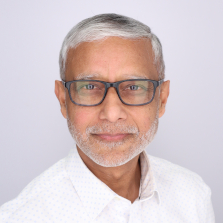
As a Professor of Biochemistry and Molecular Medicine and co-director of The McCormick Genomic & Proteomic Center at The George Washington University (GW) Dr. Mazumder works closely with national and international collaborators in developing molecular biology resources. His research focuses on developing novel methods for data-to-knowledge discovery and community-driven bioinformatics projects such as BioCompute, GlyGen, BiomarkerKB, and the High Performance Integrated Virtual Environment (HIVE). Through NCI, NSF, NIH (NIAID, NIGMS, NCI, NIH Common Fund), ARPA-H, pharmaceutical, non-profit, and FDA funding he has been involved in bioinformatics research associated with cancer biology, glycobiology, and microbiology. In addition to his research activities, he co-directs the Bioinformatics M.S. graduate program and the Genomics and Bioinformatics Ph.D. program at GW. http://orcid.org/0000-0001-8823-9945
Dr Raja Mazumder
George Washington University, United States
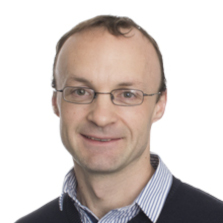
Thomas Keane is the Team Leader for the European Genome Phenome Archive (EGA) and the European Variation Archive (EVA) at EMBL-EBI. He is a member of the Global Alliance for Genomics and Health (GA4GH) steering committee, and previously co-led the Large-scale Genomics workstream. Before joining EMBL-EBI as Team Leader in 2016, Thomas led the Sequence Variation Infrastructure group in the Computational Genomics programme at the Wellcome Sanger Institute. His research interests are in using genomic technologies to understand biological processes, with a particular focus on rodent models for human disease. He is the scientific lead for the Mouse Genomes Project. He also holds an honorary professorship at the University of Nottingham.
Dr Thomas Keane
EMBL European Bioinformatics Institute, United Kingdom
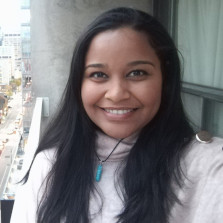
Dr Verena Ras is a South African scientist who has spent several years designing and delivering bioinformatics and genomics training across Africa. While completing her PhD part-time, she joined the University of Cape Town's Computational Biology Division, where she coordinated capacity-building programmes for H3ABioNet - a Pan African Bioinformatics network. Her work on blended training models have helped equip hundreds of researchers and clinicians with practical skills and have seeded new local training hubs throughout the continent. Elected Secretary of the Global Organisation for Bioinformatics Learning, Education and Training (GOBLET), and as Director on the Board of Directors of the International Society for Computational Biology (ISCB), Verena now helps shape international curricula and advocates for open, equitable access to genomics education. She also contributes to ethical standards for genomic sampling through the Earth BioGenome Project's Sample Collection and Processing Sub-committee.
Dr Verena Ras
University of Cape Town, South Africa
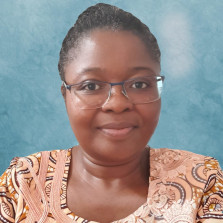
Dr Vicky Nembaware is a Senior Lecturer at the University of Cape Town (UCT) and the current Secretary of the African Society of Human Genetics (AfSHG). She serves as Project Manager and Co-Investigator for the Sickle Africa Data Coordinating Center (SADaCC). Beginning her career in the H3Africa consortium as a training manager, she has built broad expertise in curriculum design, study design and implementation, study monitoring, and large-scale data analysis across academic genomics and the public-health NGO sector. Passionate about mentoring and skills development, Dr Nembaware has led or helped establish several pan-African capacity-building initiatives. She helped coordinate the Sickle Cell Disease Ontology (SCDO) working group; was Principal Investigator for SMARTLife, which developed competencies for research managers in Africa; helped set up the H3Africa Travel Fellowships & Internships; co-founded the African Genomic Medicine Training Initiative (AGMT) to train healthcare workers in genomic medicine; and helped launch the mGenAfrica programmes to foster engagement between genomic researchers and high-school learners. At UCT, she supervises postgraduate students in data science and genomics and is co-convener of the Master's in Computational Health Informatics. She has also served on boards and scientific committees for genomics and genomic-medicine networks. Dr Nembaware earned a BSc in Chemistry and Microbiology from UCT; Honours and MSc (cum laude) from the University of the Western Cape (South African Bioinformatics Institute); and a PhD in Bioinformatics from UCT (2008). Her work consistently bridges research, training, and implementation, advancing genomics capacity, equity, and impact across Africa.
Dr Victoria Nembaware
University of Cape Town, South Africa